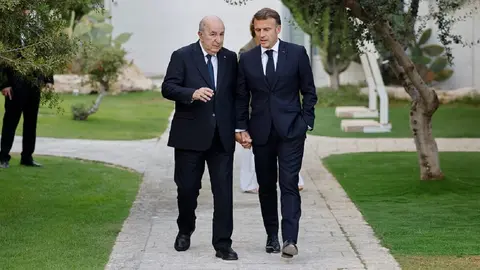Donald Trump's landslide victory may break the fragile balance in the Maghreb

Donald Trump's landslide victory and his return to the White House, with the consequent control of the Senate, the Supreme Court and possibly also Congress, could significantly alter the geopolitical balance in the Maghreb, which has its epicentre in relations between Algeria and Morocco.
The US president, who will take office in January 2025, is certain to change the country's top intelligence and security leadership.
He is expected to appoint a new CIA director to replace Williams Burns; a new National Security Advisor to replace Jake Sullivan; and perhaps a new FBI director to replace Christopher Wray, whom he himself appointed in 2017 and whom Joe Biden did not change. He will also name his new Secretary of Defense to replace Lloyd Austin, a retired four-star general whom Joe Biden picked for the job. Donald Trump will want to have his own, as his plans for NATO, Ukraine and global conflicts are important.
However, all these appointments to key Defence, Intelligence and Security posts are unlikely to directly affect US relations with North Africa, mainly Morocco, Algeria and Egypt, but also Mauritania, Tunisia and Libya.
For the close military, espionage and counter-terrorism relations that Washington has forged with North African capitals are based on a web of common interests, bilateral agreements and joint plans drawn up by specialised US agencies and their North African counterparts.
Neither the annual US-Morocco ‘African Lion’ military exercises, nor the CIA-FBI counter-terrorism agreements with the Algerian military and security forces, nor the US-Egypt ‘Bright Star’ joint military exercises involving some 20 countries, to give but a few examples, will be challenged by Donald Trump's new appointments. In these areas there will be continuity, or at least the intention of continuity.
The political and strategic relations between the White House and the Algerian and Moroccan regimes in particular will be another matter. Here there may be a major change of course.
Donald Trump's declared goal, which he set in motion in his previous term (2017-2021), is to continue and expand the Abraham Accords, initially signed by Israel with the United Arab Emirates and Bahrain, and later extended to Morocco and Sudan. Trump sees as the only solution to the Middle East conflict not the creation of two states, one Palestinian and the other Israeli, but a single state with Jerusalem as its capital, including, if it so wishes, the Palestinian population and the rest of the Arab states, which would reciprocally recognise the state of Israel.
Morocco's inclusion in the Abraham Accords in 2020 resulted in US recognition of Moroccan sovereignty over Western Sahara. This was the beginning of a rupture in the geopolitical balance in the Maghreb, but it did not go any further with the arrival of Democrat Joe Biden as President of the United States, who did not question this recognition, but neither did he put it into practice by opening consular offices in some of the emblematic cities of the Sahara: Laayoune, Dakhla, Boujdour or Smara. With Joe Biden, the issue was put on hold. Donald Trump's return to the White House will reactivate these plans, not only because they have already been approved and other countries such as France, Spain and Germany have emulated them, but also because Morocco plays an important role in the extension of the Abraham Accords and in the solution - as seen from Washington - of the Arab-Israeli conflict.
If the White House goes ahead with its plans, the fragile balance between Algiers and Rabat will be upset. In this worrying prospect, both capitals are devoting a huge budgetary effort to rearmament. According to the latest figures, Algeria will invest 23.05 billion euros in rearmament by 2025, while Morocco will spend 12.383 billion euros in the same sector. As a result, regional tension will reach unprecedented levels, and the risk of bilateral military conflict will grow.



